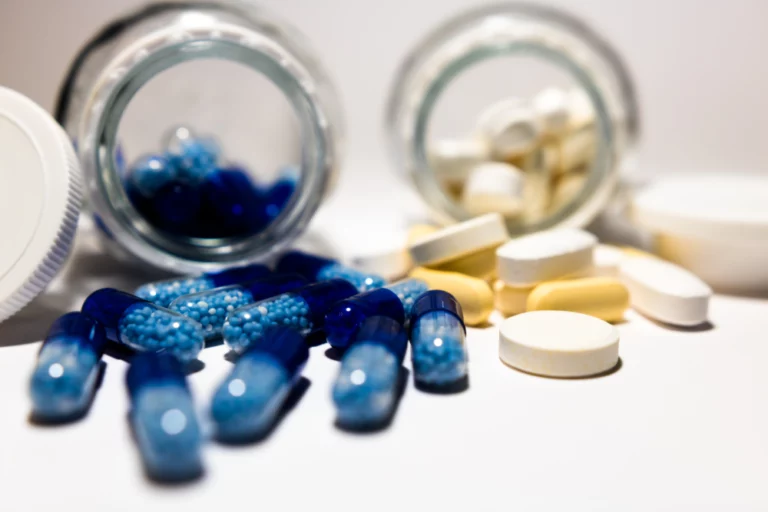Why An Addict Can’t Love You: How Addiction Affects The Brain
Loving someone who is struggling with addiction can be an emotional roller coaster. Addiction can hinder a person’s ability to love others in a healthy way, but it’s crucial to understand that it’s not a reflection of their character. By gaining insight into why an addict may struggle with expressing love, you can approach the situation with greater compassion.
In this blog, we’ll explore the reasons why an addict may struggle with expressing love and ways you can support them.
How Drug Addiction Changes The Brain
Addiction can profoundly impact the brain’s reward system, causing it to become hijacked by the addictive substance. Dopamine, a neurotransmitter associated with pleasure and reward, is released in large amounts during addiction. However, over time, the brain becomes desensitized to dopamine, and a person requires more drugs to experience the same level of pleasure.
Long-term substance use can damage the prefrontal cortex, which is responsible for decision-making and self-control. Without these functions, it can be difficult to make good judgments and regulate desires. These changes in behavior and personality can lead to increased isolation, secrecy, defensiveness, and mood swings, including irritability and depression.

How Addiction Takes Over A Person’s Life
Addiction is a complex condition that changes how a person thinks and behaves.
- Neglecting Relationships & Responsibilities: Addiction can consume a person’s time and money, causing them to neglect their responsibilities. It can also strain relationships, as individuals experiencing addiction may distance themselves from loved ones and avoid social situations that do not involve drugs or alcohol.
- Lying: Lying and deception can also become prevalent in addiction, as individuals may hide their drug or alcohol use or engage in other dishonest behavior to maintain their addiction.
- Trauma & Attachment Issues: Struggling with an addiction can make a person feel ashamed, guilty, and worthless, making it hard to trust others and form close relationships.
Drug Addiction & Healthy Relationships
Individuals with attachment issues may struggle to form secure and healthy relationships. This can lead to feelings of loneliness and isolation, making them more vulnerable to addiction to escape. However, addiction is not a long-term solution and can exacerbate these underlying issues. With professional help, individuals can learn healthy coping mechanisms and skills to manage difficult emotions and build strong, positive relationships.

Love & Support A Recovering Addict
Supporting a loved one with an addiction can be challenging, but it’s important to approach them with empathy and compassion, avoiding blaming or shaming them.
- Realize Addiction Is A Disease: Supporting a loved one with an addiction can be challenging, but it’s essential to remember that addiction is a disease that requires professional treatment and support.
- Self-Care & Therapy: While providing support, it’s crucial to practice self-care and seek support from friends, family, or a therapist. For example, many family therapy sessions can help bring you and your loved one together.
- Set Healthy Boundaries: Healthy boundaries can protect your well-being and prevent enabling behavior, such as refusing to give the addict money or shelter if they use drugs or alcohol.
- Encourage The Person To Seek Help: Encouraging your loved one to seek help can be challenging, but discussing the benefits of treatment and offering support and encouragement can significantly impact their life.

What Is Love Addiction?
Love addiction is an unhealthy attachment to a romantic partner or the concept of being in a relationship, which can be fueled by psychological and emotional factors such as fear of abandonment, low self-esteem, co-dependency, childhood trauma, and dopamine addiction.
- Fear of Abandonment: Love addicts may deeply fear being alone or left behind. This fear can make them cling to toxic or unfulfilling relationships, even if it means sacrificing their own well-being.
- Low Self-Esteem: Love addicts may have a negative self-image and rely on the validation and attention of a partner to feel worthy or lovable. This can lead to a pattern of seeking out relationships that ultimately reinforce their negative self-perception.
- Co-Dependency: Love addicts may become so enmeshed in their partner’s life that they give up their needs and desires to make their partner happy. This can lead to a lack of boundaries and an unhealthy dynamic in the relationship.
- Childhood Trauma: Love addiction can sometimes be rooted in childhood experiences of neglect, abuse, or instability. These unresolved emotions can lead to a pattern of seeking out intense and chaotic relationships as a way to cope.
- Dopamine Addiction: Like other addictions, love addiction may be caused by the brain’s dopamine production. It gives a short-lived feeling of pleasure and reward when a person is in a relationship or is seeking one out. This can create a cycle of seeking out relationships solely for the rush of dopamine.
- Addiction Takes Priority: Addiction can consume a person’s life and take priority over everything else. When someone struggles with addiction, their primary focus becomes obtaining and using drugs or alcohol. This intense focus can lead to neglect of relationships, work, and other responsibilities.

Contact Oasis Recovery Center
At Oasis Recovery Center, we offer a comprehensive range of addiction treatment programs tailored to meet the unique needs of each individual. Our services include detoxification, residential treatment, partial hospitalization, intensive outpatient treatment, and outpatient treatment.
We also provide evidence-based therapies like cognitive-behavioral therapy, dialectical behavior therapy, and trauma-focused therapy in a safe and supportive environment to help individuals address the underlying causes of their addiction and develop effective coping strategies. Contact us to learn more.









